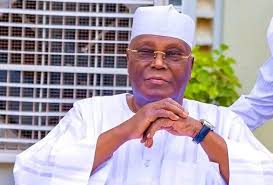The Political Earthquake: Atiku’s Resignation Stirs the Pot
Nigeria’s political landscape convulsed on July 16, 2025, when former Vice President Atiku Abubakar formally resigned from the Peoples Democratic Party (PDP). In a letter to his Jada 1 Ward Chairman in Adamawa State, Atiku cited “irreconcilable differences” and the PDP’s deviation from its foundational values, calling the decision “heartbreaking”. This marks his third exit from the PDP since 1999, following previous defections in 2006 (Action Congress) and 2014 (APC). The move accelerates opposition realignment efforts ahead of the 2027 general elections, with Atiku swiftly joining forces with Peter Obi (Labour Party) and powerbrokers like Nasir El-Rufai and Rotimi Amaechi under the banner of the African Democratic Congress (ADC). Within PDP ranks, reactions ranged from Oyo Governor Seyi Makinde’s dismissal to Board of Trustees member Bode George’s scathing critique. Adamawa PDP members celebrated his departure, with local chieftain Luka Tumba calling it “a divine answer to prayers”.
Anatomy of a Coalition: The ADC’s Emergence as Nigeria’s New Opposition Hub
The ADC—originally founded in 2005 as the Alliance for Democratic Change—has transformed into the vehicle for this grand opposition alliance. Key developments reveal strategic calculations: The coalition adopted the ADC (instead of registering a new party) due to INEC’s stringent requirements for new parties, including physical presence in 24+ states. Former Senate President David Mark chairs the coalition, with ex-Osun Governor Rauf Aregbesola as National Secretary. Beyond Atiku and Obi, the ADC has attracted PDP ex-chairman Uche Secondus, APC defectors, and influential ex-ministers. Analysts note the ADC could displace the PDP as Nigeria’s main opposition party if it sustains momentum.
| Name | Former Affiliation | Political Weight |
|---|---|---|
| Atiku Abubakar | PDP | 2x Presidential candidate, ex-VP |
| Peter Obi | Labour Party | 2023 presidential contender (25% vote share) |
| Nasir El-Rufai | APC | Ex-Kaduna Governor, ex-Tinubu ally |
| Rotimi Amaechi | APC | Ex-Transport Minister, 2023 APC aspirant |
| David Mark | PDP | Ex-Senate President |
Why Realignment? The Calculus of Power
The 2023 election results exposed opposition fragmentation’s cost: President Tinubu won with 37% (8.9m votes), while Atiku (29%/6.9m) and Obi (25%/6.1m) combined would have surpassed him. Peter Obi’s 2023 performance in Plateau State proved voter openness to alternatives beyond APC/PDP. Interim ADC Chairman David Mark framed the coalition as essential to “save Nigeria’s democracy” from one-party dominance. Yet skepticism persists—activist VeryDarkMan argued even a merger “won’t unseat Tinubu”. The PDP’s dismissive response urging Nigerians to “focus on hunger, not defections” underscores how economic crises could overshadow realignment.
Landmines on the Path to 2027: Six Hurdles for the Coalition
Peter Obi publicly insists he’ll contest for president—not as VP—while Atiku’s camp views him as the natural top candidate. Resolving this may require a divisive primary. The ADC lacks deep grassroots networks in rural strongholds. As Plateau State shows, only ex-Minister Solomon Dalung currently champions it locally. PDP leaders dismiss Atiku’s exit as inconsequential. Governor Seyi Makinde declared, “PDP is an institution… freedom of entrance and exit”, while BoT member Bode George accused Atiku of “excessive ambition”. APC spokesman Bala Ibrahim mocked Atiku as a “serial loser,” while Acting Chairman Dalori boasted the ADC posed “no real threat”. With 2023 turnout at a dismal 27%, the ADC must convince disillusioned Nigerians that coalitions aren’t elite power games. Former president Buhari’s death destabilized his 12-million-vote Northern bloc. The ADC must exploit this opening while countering APC efforts to co-opt Buhari’s legacy.
| Challenge | Risk Level | ADC’s Mitigation Strategy |
|---|---|---|
| Candidate Selection | Critical | Consensus talks or open primaries |
| Building State Structures | High | Recruiting governors/state assembly members |
| Voter Apathy | High | Championing electoral reforms (e-transmission) |
| APC’s Incumbency Advantage | Extreme | Leveraging economic discontent |
Regional Power Plays: Where the Election Will Be Won
Buhari’s death opens a fierce battle for his Northern base. Kwankwaso (NNPP) remains a wildcard—though he denied past rotation deals with Atiku/Obi, his 2023 strength (6.4% nationally) could make him kingmaker or spoiler. Obi’s core support in the Igbo-dominated Southeast faces pressure if the ADC elevates Atiku (a Northern Muslim). Regional loyalty versus coalition pragmatism will test his base. Plateau State exemplifies swing potential after Labour Party’s 2023 presidential win there. If the ADC replicates Obi’s grassroots strategy, it could flip states. Meanwhile, PDP defections in Delta and Rivers reveal APC’s encroachment into opposition territory.
Beyond Personalities: What Nigerians Actually Care About
The PDP’s reaction to Atiku’s exit was revealing: a senior official deflected, urging Nigerians to “focus on hunger” instead of “politicians switching parties”. This underscores the coalition’s ultimate test: Will the ADC articulate concrete solutions for inflation, insecurity, and education? In 2022, Atiku, Obi, and Kwankwaso shared similar policy visions but failed to unite. Aviation Minister Festus Keyamo attacked Atiku for using the national coat of arms on his resignation letter—a distraction from governance failures. The Obi-Datti 2023 campaign proved youth mobilization is viable. The ADC must harness this energy beyond social media. As analyst Samson Itodo warned, rebuilding trust requires INEC reforms like mandatory e-transmission of results.
Three Scenarios for 2027: Unity, Fragmentation, or Wildcards
An Atiku/Obi ticket materializes, Kwankwaso backs them, and Tinubu’s poor economic record delivers ADC victory. Probability: Low-Medium. Ego clashes scuttle the coalition. Obi runs separately, splitting opposition votes. APC wins again. Probability: High. Buhari’s death triggers an APC internal crisis. A Northern candidate (e.g., Kwankwaso) splits the ruling party, gifting ADC an upset. Probability: Low.
Democracy’s Stress Test
Atiku’s PDP exit isn’t just another defection—it’s the catalyst for Nigeria’s most significant opposition realignment since 2015. The ADC’s viability hinges on transcending “marriage of convenience” optics to address Nigerians’ hunger for governance, not political theatrics. Rebuilding trust requires INEC reforms and inclusive candidacies. If the coalition fails, Nigeria risks cementing one-party rule. If it succeeds, 2027 could become the year Nigerian democracy finally matured.


